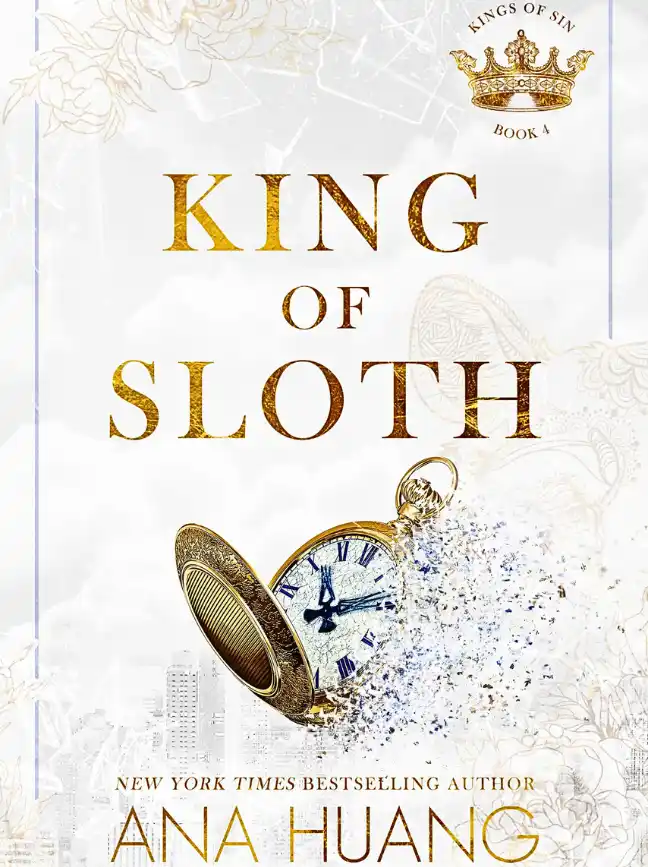A meter of snow blanketed the mountains above Casa Alpina on New Year’s Day, followed by a day’s break, and then another meter fell. There was so much snow it took until the second week of January before the escapes could resume.
After locating replacement boots, Pino and his brother began leading Jews, downed pilots, and other refugees in groups as large as eight. Despite Tito’s warnings about using Passo Angeloga they stuck to the more gradual southern way to Val di Lei by constantly changing the days and times they’d go, and then skiing back along the northern route to Madesimo.
This system worked well into early February 1944. When the lantern was shining in the upper window of the Campodolcino rectory, a steady stream of refugees hiding under hay in oxcarts moved up through Madesimo to Casa Alpina, and then followed Pino or one of the other boys over the Groppera into Switzerland.
Reaching the shepherd’s hut in a daze early in the month, Pino found a note nailed to the wall of the hut. It read: Last warning.
Pino threw the note in the stove and used it to light the wood stacked inside. He adjusted the damper and went outside to chop more wood. He hoped Tito was out there somewhere in the vast alpine terrain around him, looking through his binoculars and seeing Pino refuse to—
A thunderous explosion blew open the hut door. Pino dove into the snow. He lay there shaking with fear for several minutes before he could build up the courage to look inside. The stove was barely recognizable. The force of the bomb, or grenade, or whatever had been put in the stove had blown the firebox apart, throwing shards of heated metal that chipped the stone foundation and stuck like tiny knives in the beams and woodwork. Glowing wood embers burned holes in his pack and lit the straw bed afire.
He dragged them both into the snow and got them snuffed out, feeling completely exposed. If Tito was willing to put a bomb in the hut’s stove, he was willing to shoot him.
Pino fought off the sense that someone was aiming at him as he put his skis back on, hoisted his pack onto his shoulders, and picked up his ski poles. The hut was no longer a refuge, and the southern route was no longer a viable option.
“There’s only one way left,” Pino told Father Re that evening by the fire as the boys and several new visitors ate another of Brother Bormio’s masterpieces.
“With the snow piling up, it was inevitable that you would have to use it at some point,” the priest replied. “The spine of the ridge will be blown free of snow, and the footing will be the best on the mountain. You’ll go again with Mimo the day after tomorrow, teach him the way.”
Pino flashed on the chimney, the catwalk, and the cable traverse below the Groppera’s crag, and was instantly full of doubt. Any misstep up there in these conditions meant death.
Father Re gestured at the visitors and said, “You’ll take that young family, and the woman with the violin case. She used to play at La Scala.”
Pino twisted around, puzzled before recognizing the violinist he’d seen at his parents’ party the night of the first bombardment. He knew she was in her late thirties or early forties, but she looked like she’d aged and was ill. What was her name?
He put thoughts of the Groppera out of his mind, got Mimo, and they walked over to her.
“Remember us?” Pino said.
The violinist seemed not to recognize them.
“Our parents are Porzia and Michele Lella,” Pino said. “You went to a party at our old apartment on Via Monte Napoleone.”
Mimo said, “And you yelled at me in front of La Scala for being a little boy who couldn’t see what was happening all around me. You were right.”
A slow smile built on her face. “That seems so long ago.” “Are you okay?” Pino asked.
“Just a little queasy in the stomach,” she said. “The altitude. I don’t think I’ve ever been this high up. Father Re says I will get used to it in a day or so.”
“What shall we call you?” Mimo asked. “What do your papers say?” “Elena . . . Elena Napolitano.”
Pino noticed the wedding ring she wore. “Is your husband here, Mrs. Napolitano?”
She looked ready to cry, hugged her belly, and choked, “He made the Germans chase him while we escaped our apartment. They . . . they took him to Binario Twenty-One.”
“What’s that?” Mimo asked.
“It’s where they take every Jew they catch in Milan. Platform Twenty- One in the central station. They put them into cattle cars, and they disappear, bound for . . . no one knows. They don’t come back.” Tears rolled down her cheek, and her lips quivered with raw emotion.
Pino thought about the massacre in Meina, when the Nazis machine- gunned the Jews in the lake. He felt sick and helpless. “Your husband. He must have been a brave man.”
Mrs. Napolitano wept and nodded. “Beyond brave.”
After she’d regained her composure, she dabbed a handkerchief to her eyes and in a hoarse voice said, “Father Re said you two will take me to Switzerland.”
“Yes, but with this snow, it won’t be easy.”
“Nothing in life worth doing is easy,” the violinist said.
Pino looked down at her shoes, low black pumps. “Did you climb up here in those?”
“I wrapped them in pieces of a baby blanket. I still have them.” “They won’t work,” Pino said. “Not where we’re going.”
“It’s all I have,” she said.
“We’ll find you boots among the boys. What size are you?”
Mrs. Napolitano told him. By afternoon, Mimo had found a pair and rubbed the leather with a mixture of pine tar and oil to make the boots waterproof. He’d also gotten her wool pants to wear beneath her dress, and an overcoat, and a wool hat and mittens.
“Here,” Father Re said, handing out white pillow sacks with holes cut out for shoulders and heads. “Wear these.”
“Why?” Mrs. Napolitano asked.
“The way you are going is exposed in several places. Someone from far down on the valley floor might see your dark clothes. But with these, you’ll blend into the snow.”
Accompanying Mrs. Napolitano was the D’Angelo family—Peter and Liza, the parents, and seven-year-old Anthony and his nine-year-old sister, Judith. From Abruzzi, they were physically fit from a lifetime of farming and climbing in the mountains south of Rome.
Mrs. Napolitano, however, had spent much of her life indoors and sitting down playing the violin. She said she walked everywhere in Milan, rarely taking the trolley, but Pino could tell from her breathing at Casa Alpina that the climb was going to be an ordeal for her and for him.
Rather than dwell on what could go wrong, Pino tried to think of everything he might need. He got an extra nine meters of rope from Brother Bormio and had Mimo carry it bandolier-style in addition to his pack, ice ax, poles, and skis. Pino added several carabiners to his already heavy pack, another ice ax, crampons, skis, climbing skins, poles, and a handful of pitons.
They set out at 2:00 a.m. The moon was half-full, reflecting just enough light off the snow that they did not need the lantern. The early going could have been hellish, with all of them having to post-hole up the first rise to get to the spine, but the afternoon before, Father Re had sent out every boy at Casa Alpina to make the 122-meter vertical climb and descent, in effect boot-packing the hill. Despite the chronic pain in his hip, the priest had broken trail most of the way.
The result was a beaten-down path that climbed straight up the west flank of the Groppera. It probably saved Mrs. Napolitano’s life. Though she carried only her beloved violin in its case, she labored long and hard up that initial slope, stopping often, fighting for air, and shaking her head before hugging the violin with both hands and going on.
During the climb, which took her the better part of an hour, Pino said little other than to encourage her with phrases like, “That’s it. You’re doing fine. Just a little higher and we can rest for a bit.”
He sensed that more than that would do no good. This wasn’t like the psychological barriers he’d managed to break with the cigar store owner by deflecting his attention. Mrs. Napolitano was simply not in the physical
shape necessary to make a climb this demanding. As he followed her up the mountain, he prayed she had enough spirit and will to compensate.
Deepening snow and crevasses had made the boulder field in the bowl all the more treacherous, but with Pino’s help, the violinist crossed it without incident. When they reached the tail of the razorback spine, however, Mrs. Napolitano began to shake.
“I don’t know if I can do this,” she said. “I should go back down with your brother. I’m holding the others up.”
“You can’t stay at Casa Alpina,” Pino said. “It’s too dangerous for anyone to stay there for long.”
The violinist said nothing, but then turned, held tight to her stomach, and vomited.
“Mrs. Napolitano?” Pino said. “It’s okay,” she said. “It passes.”
“Are you expecting?” Mrs. D’Angelo said in the darkness. “A woman can always tell,” Mrs. Napolitano gasped.
She’s pregnant? A leaden weight came down on Pino’s shoulders. Oh my God! A baby? What if . . . ?
“You should climb for your baby,” Mrs. D’Angelo said to Mrs. Napolitano. “You don’t want to go back down. You know what that might mean.”
“Pino?” his brother whispered after a long silence that followed. “I can take her back, let her get more used to the altitude.”
Pino was about to agree, but then Mrs. Napolitano said, “I’ll climb.”
But what happens if the altitude gets to her, and her baby . . . ?
Pino forced himself to stop. He could not let fear take control of his brain. Fear had no business here. He had to think, and he had to think clearly.
Telling himself that over and over, Pino took the second rope from Mimo and made a loop under Mrs. Napolitano’s armpits. Then he clambered up onto the tail of the ridge. With Mimo behind her, Pino pulled, dragging the violinist up onto the spine. It was a tough chore made tougher by the fact that she held her violin case and would not yield it to Mimo.
“You’re going to have to leave the violin,” Pino said as he threw the loop back down.
“Never,” she said. “My violin stays with me always.”
“Let me carry it, then. I’ll make room for it in my pack and return it to you when we reach Switzerland.”
In the moonlight he could see Mrs. Napolitano struggling with the
idea.
“I’m going to need you to have free hands and feet where we’re
going,” he said. “If you keep the violin, you’ll put your baby’s life in danger.”
After a pause, she handed it to him, saying, “It’s a Stradivarius. It’s all I have now.”
“I’ll take care of it like my father would,” he said, strapping the violin case under the flap of his pack.
In short order, Pino pulled up the D’Angelo children—who were treating the whole thing as a grand adventure—and then their parents, who were encouraging the idea. As he had with almost every group of refugees, Pino linked them together with rope, with Mrs. Napolitano right behind him followed by Mrs. D’Angelo, the children, Mr. D’Angelo, and Mimo bringing up the rear.
Before they could start up the ridge, the young boy made a whining noise and began bickering at his sister.
“Stop,” Pino whispered harshly.
“No one can hear us up here,” Anthony said.
“The mountain can hear us,” Pino said firmly. “And if you’re too loud, it will wake up and shift under its blanket and send avalanches that will bury us all.”
“Is the mountain a monster?” Anthony asked.
“Like a dragon,” Pino said. “So we have to be careful and quiet, because we’re climbing up his scaly back.”
“Where’s his head?” Judith asked. “Above us,” Mimo said. “In the clouds.”
That seemed to satisfy the children, and the group set out once more. What had taken him less than an hour the last time he’d climbed the hard route took them almost two. It was four thirty in the morning when they reached the chimney. Pino could make out the gouge in the nearly vertical
mountain face, but he needed more light than the moon’s if they were to climb it.
He poured water into the carbide lamp and screwed the lid tight to seal the vapors that were rapidly filling the reservoir. After waiting a minute, he loosened the gas valve and hit the striker. On the second try, a thin blue flame burned against a reflecting pan, throwing enough light up the chimney that they could all see the challenge ahead.
“Oh my God,” Mrs. Napolitano groaned. “Oh my God.”
He put his hand on her shoulder. “It’s not as bad as it looks.” “It’s worse than it looks.”
“No, it’s not. Back in September, when the rock was bare, it was worse, but see the ice on both sides? The ice has narrowed the chimney, made it more climbable.”
Pino looked to his brother. “This may take a little time, but I’m going to cut steps. Keep them moving and warm until you hear me whistle that I’m sending down the axes. Then rope up and send Mr. D’Angelo. I’m going to need his strength up there. You’ll come up last.”
For once, Mimo didn’t argue about being last. Pino freed himself from the group rope, dropped his pack, and put on crampons. With Mimo’s rope coil slung like a bandolier, he picked up his ice ax and Mimo’s and said a prayer before he began to climb. His back to the mountain, Pino reminded himself not to look down before he kicked in the blades of his crampons for support, reached overhead, and jabbed the pick points of the axes into the ice floe.
With every half meter gained, Pino stopped and carefully chopped out flat spots for the others. It was maddeningly slow work, and the higher he got, the more he was aware of lights coming on, one by one, down in Campodolcino. He knew that with binoculars someone might see the miner’s lamp lighting up the inside of the ice chimney, but he felt he had no choice.
Forty minutes later, drenched with sweat, Pino reached the balcony. He kept the lamp on long enough to attach a carabiner to a piton he’d driven into the rock the last time he’d climbed this way, and to pass one end of the rope through the carabiner before testing it with his weight. The anchor held.
Pino tied the ice axes and his crampons to the rope, whistled, and then lowered them down the chimney. Several minutes later, he heard his brother
whistle, and he took the slack out of the rope. Mr. D’Angelo came up onto the balcony fifteen minutes later. Together they pulled his son, daughter, and wife up quickly.
Pino could hear Mrs. Napolitano moaning with fear even before she entered the icy slot. He lowered the mining lamp down for her to use. The additional light only seemed to deepen the pregnant violinist’s terror. Shaking head to toe, she took the ice axes and in crampons clomped into the chimney.
“Right hand first,” Mimo said. “Just give it a good whack in there where Pino’s leveled things off.”
Mrs. Napolitano did so, but halfheartedly, and the ax came free before she could get her full weight on it.
“I can’t,” she said. “I can’t.”
Mimo said, “Just climb the stairs Pino made, stabbing the axes and the crampons’ blades in tight, back and forth all the way up.”
“But I could slip.”
Pino called down the chute, “Not with us holding the rope, and definitely not if you kick those crampons and swing those axes like you mean it . . . like your violin bow when you play con smania.”
That last bit, referring to playing with passion, seemed to get through to her, because Mrs. Napolitano slashed up and out with her right ax. From above, Pino heard the pick end drive solidly into the ice. He backed up to join Mr. D’Angelo on the rope, and he had his wife lie on her belly, looking over the edge and down the chute to tell them each time the pregnant violinist was going to shift her weight and climb higher. Whereas the others had come up half meter by half meter, her ascent was measured in centimeters.
Almost four meters off the ground, Mrs. Napolitano somehow lost her footing, shrieked, and fell. They caught her, and she dangled there, moaning and blubbering until they could coax her into trying again. Thirty-five nail- biting minutes later, they hauled her up and over onto the balcony. In the wavering light of the miner’s lamp, frost coated her clothes and icy snot clung to her face, making her look like she’d been through a frozen hell and back.
“I hated that,” she said, collapsing. “Every second of it I hated.”
“But you’re here,” Pino said, grinning. “Not many people could have done that, and you did. For your baby.”
The violinist placed her mittens over her overcoat and belly, and closed her eyes. It took another twenty minutes until they could hoist up the packs, tasks made difficult by the poles and skis strapped to the sides, and another fifteen minutes for Mimo to come up the chimney.
“That wasn’t too bad,” Mimo said.
“You must have been tortured as a child,” Mrs. Napolitano said.
By Pino’s watch it was almost six o’clock. Dawn would come soon. He wanted them off the face of the Groppera before that. He tied them all back into the rope line, and they started higher.
At six thirty, when they should have been seeing the first paling in the eastern sky, it was suddenly darker than it had been during the entire ordeal. The moon had vanished. Pino felt the wind shift, too, out of the north now, and stronger.
“We have to move faster,” he said. “We have a storm coming.” “What?” Mrs. Napolitano cried. “Up here?”
“This is where storms happen,” Mimo said. “But don’t worry. My brother knows the way.”
Pino did know the way, and for the next hour as daylight came amid flurrying snow, they made steady progress. The snowfall was good, Pino decided. It would help hide them from all prying eyes.
Around seven thirty the storm intensified, and Pino dug out a pair of glacier glasses his father had given him for Christmas, with leather side blinders to keep out the snow. Dark clouds enveloped the Groppera. Supercooled by the frozen crag above them, the clouds began to pour snow down on them. Pino fought the urge to panic as he used his ski poles to probe his way forward, intensely aware that the higher they got, the greater the likelihood of a false step. The wind began to swirl, causing whiteouts. The visibility was so low he was almost climbing blind, and it rattled him. Pino was trying to keep faith, but he felt doubt and growing alarm creep into his mind. What if he took the wrong angle on the route? Or made a misstep at a crucial time and fell? With his weight, they’d all be going for a neck-breaking ride. He felt the rope tug him to a halt.
“I can’t see,” Judith cried. “Neither can I,” her mother said.
“We’ll wait, then,” Pino said, trying to keep his voice calm. “Turn your backs to the wind.”
The snow kept falling. Had the wind stayed a steady gale, they never would have made the catwalk. Instead, it gusted and died to almost nothing every few minutes. During those gaps where Pino could make out the route, they fought their way upward until he felt the ridgeline level out and narrow. Ahead fifteen meters, he could make out the catwalk and the snowy, concave mouths of the avalanche chutes on either side.
“We go one by one here,” he said. “See the white little bowls of snow next to the spine? Don’t step there. Just put your feet exactly where I do, and you’ll be fine.”
“What’s under that snow?” Mrs. Napolitano asked.
Pino didn’t want to tell her. Mimo said, “Air. Lots of it.” “Oh,” she said. “Ohhh.”
Pino wanted to smack his brother.
“C’mon now, Mrs. N,” Pino said, trying to sound encouraging. “You’ve come this far, and done worse. And I’ll have the other end of the rope.”
The violinist made a puffing noise, hesitated, and then nodded weakly. Pino untied the group line and knotted it to Mimo’s to create one long line. While he worked, he whispered to his brother. “From now on, keep your mouth shut.”
“What?” Mimo said. “Why?”
“Sometimes the less you know, the better.”
“Where I come from, the more you know, the better.”
Seeing it was fruitless to argue, Pino tied the rope around his waist. He imagined himself a tightrope walker and held the ski poles horizontally to help him balance.
Each step was dreadful. He’d test first with the toe of his crampon, kicking gently until he heard rock or ice, and then press his heel directly onto that spot. Twice he felt his balance teeter, but managed both times to right himself before reaching the narrow ledge beyond. He paused, his forehead resting against the rock until he felt composed enough to drive a piton into the face.
He got the rope rigged through it. Mimo pulled back the slack, and the rope was taut, like a banister. The wind gusted. The whiteout returned. They were visually separated for more than a minute. When it calmed and he was able to make out the others back on the other side of the catwalk, they looked ghostly.
Pino swallowed hard. “Send Anthony first.”
Anthony held on to the taut rope with his right hand and put his boots exactly in Pino’s prints. He was across in a minute. Judith followed her brother, holding on to the rope and putting her boots in Pino’s prints. They accomplished the task with relative ease.
Mrs. D’Angelo came next. She froze between the avalanche chutes, looking hypnotized.
Then her young son called out, “C’mon, Mama. You can do it.”
She pushed on, and when she reached the ledge she wrapped her arms around her children and cried. Mr. D’Angelo came next and accomplished the feat in seconds. He explained that he’d done gymnastics as a boy.
The wind gusted before Mrs. Napolitano could begin the journey. Pino cursed to himself. He knew that the mental trick to crossing something like the catwalk was not to think about it until you were actually in motion. But she couldn’t help thinking about it now.
Her ascent of the chimney, however, seemed to have emboldened Mrs. Napolitano, because when the wind ebbed and the visibility returned, she started across without Pino’s prompting. When she was three-quarters of the way across the catwalk, the wind picked up again, and she vanished in swirling white.
“Don’t move a muscle,” Pino shouted into the void. “Wait it out!”
Mrs. Napolitano did not reply. He kept testing the line gently, feeling the weight of her out there until, at last, the wind dropped, and she was standing there coated in snow, as still as a statue.
When she reached the ledge, she held on to Pino tightly for several moments and said, “I don’t think I’ve ever been that scared in my life. I know I haven’t prayed that hard in my life.”
“Your prayers were answered,” he said, patting her on the back, and then whistling for his brother.
With one end of the long rope tightly knotted around his brother’s waist, and Pino ready to take in slack, he said, “Ready?”
“I was born ready,” Mimo replied, and set off quick and sure.
“Slow down,” Pino said, trying to pull the slack rope through the piton and carabiner as fast as possible.
Mimo was already almost between the two avalanche chutes. “Why?” he said. “Father Re says I’m part mountain goat.”
Those words had no sooner left Mimo’s mouth than he stumbled slightly. His right foot shot out too far, and broke through. There was a sound like someone plumping a pillow. Then the snow in the chute swirled and slid like water cycling down a drain, and to Pino’s horror, his little brother went with it, vanishing into a whirlpool of white.








